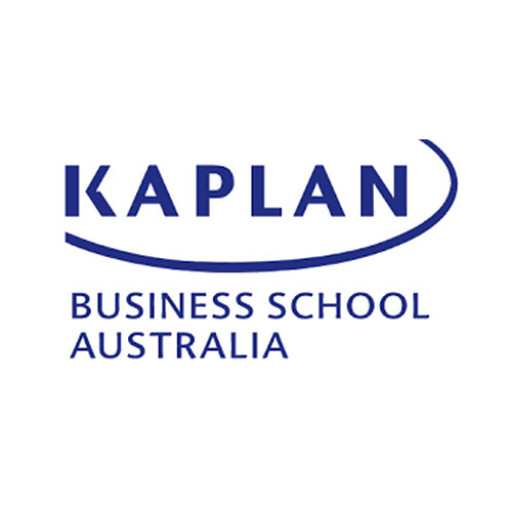The Bachelor of Applied Finance (Accounting) offered by Kaplan Business School provides students with a comprehensive education in the fundamental principles and practices of accounting within the context of the broader financial environment. Designed to prepare graduates for a variety of roles in the accounting and finance sectors, this program emphasizes both theoretical understanding and practical skills necessary to succeed in today's dynamic business landscape. Throughout the course, students will explore key areas such as financial accounting, management accounting, taxation, audit and assurance, financial reporting, and ethical considerations in financial practice. The curriculum integrates contemporary accounting standards and practices, ensuring graduates are equipped with up-to-date knowledge that aligns with industry requirements. Students also develop critical analytical skills, attention to detail, and the ability to interpret financial data accurately, which are essential competencies for accountants, auditors, financial analysts, and other finance professionals. The program emphasizes real-world applications through case studies, practical assignments, and industry-relevant projects, fostering a hands-on learning experience that bridges academic theory with practical implementation. Assignments and assessments are designed to enhance problem-solving skills, develop strategic thinking, and promote ethical decision-making. Additionally, the program offers opportunities for internships and industry engagement, enabling students to gain valuable work experience and build professional networks. Upon graduation, students are well-prepared to pursue careers in accounting firms, corporate finance departments, government agencies, and more. The Bachelor of Applied Finance (Accounting) at Kaplan Business School combines academic excellence with practical training to ensure graduates are job-ready and capable of contributing effectively to their organizations from day one.
All Bachelor and Post Graduate Bookkeeping Programs are outcomes-focused and Licensed by the Association of Chartered Certified Accountants (ACCA), the Chartered Accountant Australia and New Zealand (CAANZ) and Certified Practicing Accountants Australia (CPA).
- A Australian Bachelor degree (or equivalent). English Entry Requirements: Academic IELTS Overall 6.0, with no individual band score less than 6.0) or
- TOEFLiBT - 72 or
- TOEIC - 700 or
- FCE & CAE - overall rating of 169 (with no band less than 169) or
- PTE Academic - score of 54 or
- EAP - Level 3
The Bachelor of Accounting at Kaplan Business School offers a comprehensive educational experience that prepares students for a variety of financial careers. The program is designed to equip students with essential skills in financial accounting, management accounting, taxation, auditing, and financial management. Tuition fees for the Bachelor of Accounting program are structured to reflect the high-quality education and resources provided by Kaplan Business School. Typically, the cost per unit or module varies, with full program costs estimated around AUD 30,000 to AUD 35,000 for international students, though exact figures may fluctuate annually. Kaplan Business School offers flexible payment options, including upfront payments and payment plans, to accommodate students’ financial situations. Scholarships and financial aid opportunities are also available, aimed at supporting students' educational pursuits and reducing financial barriers. The program itself is accredited and recognized across the industry, which enhances graduates’ employment prospects and supports financial investment in their future careers. Students are encouraged to explore external sources of financial aid and scholarships from government or private entities to supplement their funding. Additionally, some students may qualify for student loans or support programs depending on their country of residence and eligibility criteria. The university provides detailed information regarding tuition fees and associated costs on its official website and through admissions officers, ensuring transparency and clarity for prospective students. Overall, financing a degree in Accounting at Kaplan Business School involves a combination of tuition fees, potential scholarships, and personal financial planning, all aimed at leading students towards successful careers in finance and accounting fields.
The Bachelor of Accounting at Kaplan Business School is designed to provide students with comprehensive knowledge and practical skills required for a successful career in the accounting and finance industries. This program covers fundamental areas such as financial accounting, management accounting, auditing, taxation, and corporate governance, preparing graduates to navigate the complex financial landscape. Students will develop strong analytical and problem-solving skills, enabling them to interpret financial data effectively and make informed business decisions. The curriculum is structured to blend theoretical understanding with real-world applications, often including case studies, group projects, and industry internships, which foster practical experience and professional readiness.
Kaplan Business School emphasizes a student-centered learning approach, ensuring that learners receive personalized support from experienced instructors. The program also aligns with industry standards and accreditation requirements, which enhances graduates’ employability across various sectors including accounting firms, financial services, government agencies, and corporate organizations. Students have access to state-of-the-art learning facilities, online resources, and networking opportunities through events and partnerships with industry professionals. The Bachelor of Accounting aims to equip students with the skills to pursue further professional qualifications such as CPA or CA, thus broadening their career prospects. The program typically spans three years of full-time study, with flexible options for part-time learners. Overall, it offers a solid foundation in accounting principles combined with opportunities for professional development and career advancement in the global financial industry.






